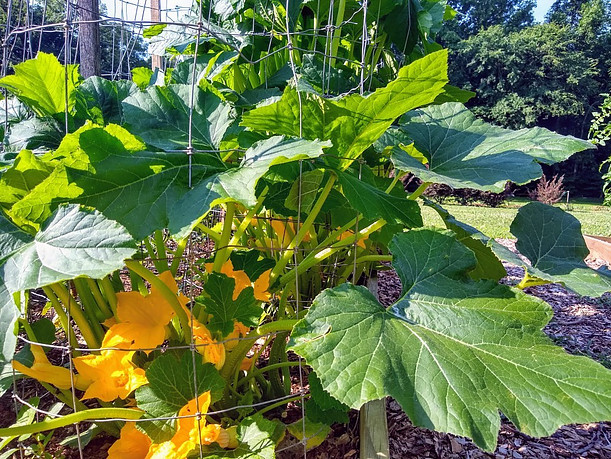HERE it is!
[30 FOODS] The Best List for Plant-Based foods is in THIS article!
There are many beautiful plant-based foods; bright, colorful, and wonderfully delicious!
These foods are sometimes confused with foods that are not derived from plants. Plant-based foods consist of vegetables, grains, nuts, seeds, legumes, and fruits.
Dieting only on plant-based foods can have its benefits, but also its potential risks.
The Best List for Plant-Based Foods
Plus extra Protein
- Pumpkin – Cooked pumpkin is high in beta-carotene, which is a carotenoid that your body turns into Vitamin A. It is also packed with many other vitamins and minerals, low in calories and consists of 94% water. Other facts;
- Member of the squash family
- Can boost vision health
- Heart-healthy
- Aid in weight loss
- Support eye health
- Promotes skin health (pumpkin pulp also makes a great natural face mask)
- Pumpkin Seeds – Pumpkin seeds are a great source for fiber. One ounce of pumpkin seeds equals 1.7 grams of fiber. Fiber helps you stay full for longer. They are also packed with valuable nutrients that can:
- Improve heart health
- Help regulate the immune system
- Support people who struggle from iron deficiency due from it high iron content
- Act as an anti-inflammatory; pumpkin seed oil can relieve joint pain and help to treat arthritis
- Improve the quality of sleep; eating a handful of pumpkin seeds before bedtime can help promote a restful sleep
- Decrease postmenopausal symptoms such as hot flashes, cramps, and headaches
- Yellow Squash – Squash is rich in nutritional benefits, has fewer calories, carbs, and less fat than many other foods. It can be boiled, baked, stewed with onions, or added to soups and casseroles. Some benefits include:
- Low in calories
- Rich in essential vitamins
- Contains high amounts of antioxidants that can help prevent cancers
- Heart-healthy
- Promotes healthy bones, due to its high levels of manganese and vitamin C
- It’s absolutely delicious, no matter how it’s cooked!
- Cauliflower – Cauliflower is an amazing vegetable! Rich in vitamins B, C, E, and K, as well as many essential minerals. There are a variety of ways to eat cauliflower including raw, boiled, mashed (substituting for potatoes), and included in soups and casseroles. Other health benefits include:
- Great source of protein, fiber, and omega-3 fatty acids
- Low in calories and carbs
- Heart-healthy
- Improves blood circulation
- Aids in digestion and the elimination of toxins in the body
- Promotes healthy skin and hair
- Sweet Potatoes – Sweet potatoes are high in fiber and have fewer calories than many other foods. High fiber foods fill you up faster and help slow digestion, preventing over-eating and snacking between meals. Other benefits include:
- Low in calories, sugar, and fat
- An abundant source of vitamins and minerals; Vitamin A, B5 & B6, C, vitamin E, potassium and manganese
- Improves blood sugar regulation
- High in Antioxidants
- Aids in weight loss
- Enhances brain function, vision health, and immunity
- Kale – Kale is one of the healthiest weight loss fiber foods in the world and has more nutritional benefits than most other green vegetables. Fiber fills your tummy up and keeps you sated for longer. Health benefits include:
- Good source for Vitamin C and Vitamin K
- Very high in Beta-Carotene
- Aid in weight loss
- Nutrient-dense food
- Reduces the risk of heart disease
- Contains powerful antioxidants that decrease certain diseases
- Spinach – Spinach is another very healthy vegetable, loaded with vitamins, calcium, potassium, iron, and magnesium. It can easily be a part of any clean eating plans for weight loss. Other benefits include:
- Improves eye health
- Helps regulate blood pressure
- Contains a special antioxidant, Coenzyme-Q10, which is important for muscle strengthening
- Boost immunity
- Decreases risk for cancer
- Aids in weight loss
- Mushrooms – Mushrooms are rich in many vitamins and minerals including potassium, phosphorus, magnesium, sodium, Vitamin C, Vitamin B, and Vitamin D. Some benefits from mushrooms are:
- Rich in selenium, which may reduce certain cancers and diseases
- Contain no cholesterol
- Rich source of calcium, improving the health of bones
- Boost immune system
- Some types of mushrooms contain high amounts of potassium, which can help regulate blood pressure
- Can be considered a source of a lean protein food that is great to be part of weight-loss diets
- Beans & Legumes – Most beans are high in protein, fiber, and iron. Beans such as Black Beans, Lima beans, and White Beans are a great source for dietary fiber, protein, and potassium. Some legumes include split peas, lentils, chickpeas, kidney, pinto, black and white beans. Benefits for some of these can include:
- Low-fat foods
- High iron content
- High in protein & fiber
- Can be cooked in a variety of ways or included in salads
- Heart Healthy
- Keep you full for longer
- Lentils – Lentils are legumes, related to beans and peanuts. Lentils vary from dried beans because they do not require pre-soaking, but they do need to be sorted for bad or damaged lentils before cooking. Benefits from lentils are much the same as beans and legumes:
- High-fiber food
- High-protein (but they are generally high in carbs as well)
- Loaded with minerals such as magnesium, calcium, potassium, zinc, and phosphorus
- Delicious in soups, salads, stews, sauces, and work well when pureed
- Easy to prepare
- Large variety; different taste and textures (Brown lentils, Red lentils, Green lentils, and many others)
- Chickpeas – Chickpeas, also known as garbanzo beans, are a great source for fiber and protein. There are tons of health benefits from just eating 1 cup of chickpeas! They are great on salads and in soups!
- Packed with nutrients
- May help suppress the appetite
- Rich in plant-based protein
- Aid in weight loss
- In one cup of these guys there are:
- 13 grams of fiber
- 15 grams of protein
- In one cup of these guys there are:
- Brussels Sprouts – Lets not forget these little green balls of deliciousness! They are closely related to kale, cauliflower and mustard greens. Brussels Sprouts are high in nutrients; fiber, vitamins and minerals. They are also low in calories! Here are just a few benefits from brussels sprouts:
- Rich in Vitamin K, necessary for blood clotting and bone health
- High in Vitamin C, which helps promote iron absorption
- Supports gut health, due from its high fiber content
- Rich in Antioxidants; helps lower risk of chronic disease
- One of the best plant source of omega-3 fatty acids
- Anti-inflammatory properties
- Broccoli – For some individuals, broccoli is hard to like, especially without cheese sauce. If you love it, then you’re in luck! Many health benefits can be acquired from eating broccoli.
- High potassium; great for the nervous system
- Contains magnesium and calcium which helps to regulate blood pressure
- Great source of vitamin C
- Promotes healthy bones from the calcium and vitamin K
- Boost immune system
- Aid in weight loss; broccoli contains high amounts of fiber which helps support digestion, preventing constipation, and maintaining a healthy gut.
- Quinoa – Quinoa is often not known about or forgotten. Let me remind you, this very healthy food is gluten-free, high in protein, and is a plant-based food containing all the essential amino acids. In other words, VERY nutritious!It’s high in calories and carbs, but don’t let all of which scare you away.Here are some facts:
- Quinoa was a very important crop for the Inca Empire, who considered it the “mother of all grains“.
- Non-GMO, gluten-free (usually grown organically)
- Considered a whole-grain food
- Anti-inflammatory properties
- Contains all nine essential amino acids
- Quinoa contains plant antioxidants called flavonoids, two of which; Quercetin and Kaempferol.
- Almond Milk – Almond milk literally comes from grinding almonds and mixing with water. It’s not only very nutritious, but also low in calories and sugar, but high in vitamin E and calcium. More facts:
- Lower in calories than eating raw almonds
- Unsweetened almond milk is plant-based and supports a healthy weight loss diet.
- Since it’s offered as unsweetened, it’s very low in carbs. Sweetened and flavored almond milk will contain more sugar and carbs.
- High in Vitamin E; powerful antioxidant
- Great alternative for Lactose intolerant individuals; naturally lactose-free milk product (great for smoothies!)
- Peanuts – Peanuts are plant-based, low in carbs, and can easily be included in a healthy diet. They are a good source of protein and will help keep hunger at bay. Nutritional benefits:
- High-protein food
- Decreases snacking between meals
- Energy Boosting
- Good Source of fiber and healthy fats
- Cholesterol Free
- Contains more than 30 vitamins and nutrients; a good source of antioxidants
- Goji Berries – Goji berries are fruit known for promoting feelings of calmness. The less stress you feel, the easier it is to lose weight. Goji berries are great in smoothies, breakfast bowls, or eaten raw or dried. Benefits include:
- Promotes calmness and restful sleep
- Aids in Weight loss
- Contains chemicals that might lower blood pressure and blood sugar
- Improves mental function, feelings of contentment, and quality of sleep
- Regulates bowels
- Increases energy levels
- Blueberries – Blueberries are so yummy and low in calories! They are pretty high in fiber and eaten in a variety of ways. Try them mixed in Greek Yogurt, Diet smoothies for weight loss, or on frozen yogurt. Here are a few benefits:
- Good source of vitamins and minerals; including Vitamin K, Vitamin C, Vitamin E, Vitamin B6, Manganese, and copper.
- Rich in antioxidants
- Heart Healthy
- May help brain function better
- Avocados – Avocados are fruit, high in fiber, rich in vitamins and minerals, and healthy fats. Some nutritional benefits:
- High-Fiber
- Decreased risk of cardiovascular disease
- Aid in weight loss; the fiber helps to satisfy hunger for longer
- 73% of water
- Great source of healthy fats; rich in monounsaturated fatty acids
- Decreased risk of diabetes and cancer
- Almonds – Almonds make great healthy snacks. They promote a healthy well-being, providing many essential nutrients. Some health benefits derived from almonds are:
- GlutenFree
- Excellent source of vitamin E
- Rich in monounsaturated fatty acids
- Decreases risk of coronary artery disease and strokes
- Packed with important vitamins and minerals including; B-complex, B6, Vitamin A, C, and E, calcium, copper, iron, magnesium, manganese, zinc, and more.
- Cashews – Cashews are lower in fat than most other nuts. They contain mostly unsaturated fat and are a good source of protein. Benefits from cashews:
- Heart-healthy
- Rich in Vitamins and minerals; vitamin B6, folate, vitamin E, thiamine, riboflavin, magnesium, phosphorus, calcium, iron, potassium, zinc, manganese, and selenium
- Low fat
- Healthy snack
- Chia Seeds – Chia Seeds are a superfood rich in fiber. They are known for increasing energy, reducing cravings, and satisfying hunger for longer. Other benefits include:
- Easy to digest
- Energy-boosting
- Aid in reversing Type 2 Diabetes
- Boost endurance
- Contain super antioxidants, omega-3 essential fatty acids, protein and fiber
- Tofu, Tempeh, and Edamame – These are soy foods with excellent nutritional value. If you’re on a plant-based diet, I highly recommend these.
- Soy Products
- Tofu is a creamy white soy product, usually found in small cubes. They have a high calcium content and a good source for protein. Tofu can be grilled, stir-fried, sauteed, or baked and sometimes people broil it.
- Tempeh is often used as a meat substitute. Tempeh contains more protein than tofu and tends to have more flavor. Some people think it tastes similar to chicken.
- Edamame are small, fuzzy, dark green pods and can be eaten fresh. They are higher in protein and fat than many other beans. Although the fat is high, it is unsaturated. Edamame contains essential amino acids making it a complete source of protein.
- Soy Products
- Hemp Seeds – Hemp seeds are rich in protein and contains omega-3 & omega-6, fatty acids. There are many health benefits from hemp seeds. Some include:
- Improve heart health, skin, and joints
- Provides all nine essential amino acids
- Contains fiber, healthy fats, and important vitamins and minerals
- Decrease risks of neurological conditions
- Boost heart health
- Reduces inflammation
- Ezekiel Bread – Ezekiel is one of the healthiest bread one can eat. It is made from a variety of whole grains and legumes and much richer in fiber and essential nutrients. This bread consists of cereal grains such as wheat, millet, barley, and legumes, including soybeans and lentils. Benefits:
- Made from four types of grain
- Ezekiel bread is germinated from sprouted grains instead of just grinding them into bread, which increases the healthy nutrients found in the grain and reduces harmful substances.
- Black Beans – Black Beans are packed with fiber, folate, potassium, and protein! They will satisfy the hunger as well any meat product could. Some health benefits from black beans include:
- Decreases constipation and bloating
- Can lower “Bad” cholesterol levels
- High levels of magnesium protects the bones
- Promotes healthy blood pressure from the potassium in black beans
- Lima Beans – Lima beans are also known as butter beans. Lima beans are rich in insoluble fiber, low in fat, and contain no cholesterol. Some benefits include:
- Heart-healthy
- Great protein source, especially for vegetarians
- Decrease chances for constipation
- Controls cholesterol
- Improve cardiovascular health
- Wild Rice – Wild rice is an excellent source for a low fat, high fiber food. It contains a lot of protein and essential vitamins and minerals, such as B1, B2, B3, and B9, iron, potassium, phosphorus, zinc, and magnesium. Some benefits include:
- Enhances skin, hair, eyes, and liver health from zinc
- The magnesium supports healthy strong bones
- Great source for powerful antioxidants
- Decreases the risk of Type 2 Diabetes
- Oatmeal (Steel-cut) – Oats are a whole-grain food and a good source for fiber. It is also high in vitamins, minerals, and powerful antioxidants. Some common benefits from eating oatmeal include:
- Because it is rich in fiber, it keeps you full for longer
- Great source of protein
- Essential vitamins and minerals including manganese, phosphorus, copper, vitamin B1, iron, selenium, magnesium, and zinc.
- Rich in antioxidants
- Corn – There has been some confusion about whether corn is healthy or not. Dr. Axe wrote an article trying to help, also published a video, explaining more about corn; see below. There are Pros and Cons about eating corn. Benefits of the “Pros” include:
- High in Fiber
- Good source of antioxidants
- Digests slowly
- Gluten-free

5 Non-Plant Based Foods
- Bread – Keep an eye on the ingredients list for bread, it may contain milk, lard, or maybe even eggs. Your best bet is to make your own, but if that’s not an option, look for freshly made breads in or near the deli department of your local supermarket.
- Soup Stock – Many soup stocks available on the market contain some sort of animal fat or bi-products. If you are a true Vegan, you may want to consider making your own vegetable stock.
- Dairy-Free Cheese – Don’t let labels that say “dairy-free” fool you! Just because it’s dairy-free doesn’t mean it’s Vegan friendly. It may contain casein or whey protein. Try to find cheese that is labeled, “Vegan-friendly”.
- Worcestershire Sauce – Wrong again! Beware of certain sauces because they may contain non-plant based ingredients. Worcestershire sauce contains anchovies! (Vegan-friendly alternative – Tamari)
- Cereal – Boxed cereal and cereal bars can fool you! If they don’t say “Vegan-friendly,” watch out for ingredients like casein, nonfat milk powder, whey protein, or whey protein isolates. Whole grain cereals and cereal bars may be a safer option.
Health Benefits for Plant Based Dieting
Although some people think meat is a necessary food item to include in healthy diet, this is not actually true. After reading and researching more about this type of dieting, I’ve found that plant-based dieting is very health.
Some people on a plant-base diet still eat meat, but they try to limit portions and eat good quality meats such as fish, lean beef, and chicken breast.
Generally, plant based dieting will include less saturated fat and bad carbohydrates. Reducing saturated fat from the diet can have many health benefits, especially for cardiovascular health.
There have been many studies over the years on plant-based dieting and how it can benefit the body.
A study was actually published in the Journal of the American Medical Association and Permanente Journal. This study showed remarkable benefits including reduced hypertension, lower cholesterol, better weight management, and reduced risk of heart diseases.
Forming new habits…
Managing a healthy plant-based diet can be difficult at times. It requires more planning and discipline. Making it a habit to read labels on food products and knowing/understanding those labels is very important for this type of diet.
Eventually those new habits will become part of a normal routine and require less time deciding on the right foods to eat.
Plant-based dieting can greatly benefit those who suffer from obesity, Type 2 diabetes, high blood pressure, lipid disorders, or cardiovascular disease.
High-Fiber content…
Plant-based foods have high-fiber content, more complex carbohydrates, and water which leads to healthier digestive system and increased satiety.
Key benefits from Plant-Based Dieting
- Helps with weight loss
- Reduces the risk of heart disease
- Reduces the risk of cancer
- May help control Diabetes
- Prevention of chronic illnesses such as; obesity, hypertension, cardiovascular diseases
There are many reasons people chose to eat plant-based foods, whether it’s to aid in weight loss, or help control certain health conditions.
Above all else, finding the wellness journey that suits you as an individual and is sustainable for a healthier lifestyle is very important, although it can be challenging.
Healthier New “You”!
There are tons of resources about different forms of dieting, but you are the only one that can take the initiative, do the research, and chose to explore new and lifelong wellness journeys.
It’s up to you, to become a healthier new “You”!
Plant Based Foods have Less Protein
It is true that some plant-based foods lack protein, but there are many fruits and vegetables ccontaining enough protein to make-up the difference.
Dark leafy greens like collards and kale are protein-rich vegetables. Here is a list of high-protein foods to include in a plant-based diet;
- Collards – 1-cup, cooked collards contains 5.1 grams of protein.
- Kale – 1-cup, cooked kale contains 3.5 grams of protein.
- Broccoli – 1-cup, cooked broccoli contains 5.7 grams of protein.
- Peas – 1-cup, cooked peas contains 13 grams of protein!
- Spinach – 1 bunch of raw spinach contains 9.7 grams of protein. (1 cup, cooked = 5.3 grams)
- Sprouts – Vary among different types;
- Sprouts from dried peas = 10.6 grams of protein per 1/2 cup
- Soybean sprouts = 9 grams of protein per 1-cup
- Sprouts from wheat seeds = 8 grams of protein per 1-cup
- Lentil sprouts = 6.9 grams of protein per 1-cup
- Fresh Kidney bean sprouts = 7.7 grams of protein per 1-cup
- Sprouts from Navy Beans = 6.4 grams of protein per 1-cup
- Mushrooms – 1-cup, cooked white mushrooms contains 3.4 grams of protein
- Brussels Sprouts – 1-cup cooked brussels sprouts contains 5.6 grams of protein
- Artichokes – 1- 9 ounce package of cooked artichokes contains 7.5 grams of protein
- Hemp seed (great addition for protein smoothies!) – 1 tablespoon of hemp seeds contains 10 grams of protein

List of Plant-Based Foods; Summary
Summing things up; a nice little list of plant-based foods for you to remember next time you visit your supermarket. These are the plant-based foods that I recommend, because of their nutritional value:
- Pumpkin
- Pumpkin Seeds
- Yellow Squash
- Cauliflower
- Sweet Potatoes
- Kale
- Spinach
- Mushrooms
- Beans & Legumes
- Lentils
- Chickpeas
- Brussels Sprouts
- Broccoli
- Quinoa
- Almond Milk
- Peanuts
- Goji Berries
- Blueberries
- Avocados
- Almonds
- Cashews
- Chia Seeds
- Tofu, Tempeh, Edamame
- Hemp Seeds
- Ezekiel Bread
- Black Beans
- Lima Beans
- Wild Rice
- Oatmeal (Steel-cut)
- Corn
Authors Note
I hope you enjoyed this article for the best list for plant-based foods. I actually learned a lot myself, while doing the research on the information so I could share it with others.
Are you on a Plant-based Diet?
Are you vegan or vegetarian?
Do you have any helpful suggestions about plant-based dieting that you wouldn’t mind sharing?
Can you share with us some plant-based food recipes?
I would love to hear from you in the comment section down below.
Please share with us, your thoughts, opinions, experiences, or suggestions.
I look forward to hearing from you in the near future.
Always wishing the best of health!
Cheers! For a healthier new “YOU”! 🙂
Devara
![[30 FOODS] The BEST List for Plant Based Foods](https://mymuffintopbellyfix.com/wp-content/uploads/2019/10/salad-1996240_1280.jpg)



